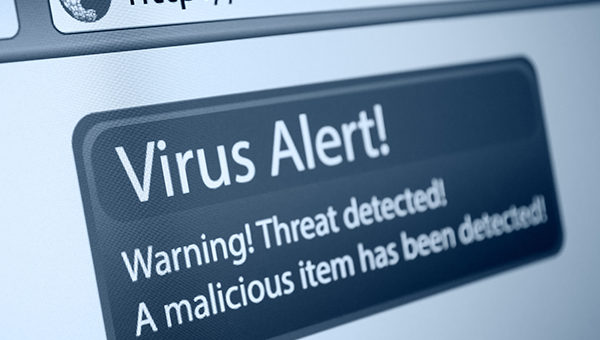Sending fake software updates is hackers’ malicious attempt to steal private information of any sort that they can use in many illegal ways. Regardless of what website you use for your downloads, freeware and apps, this can happen to anyone! Downloading anti-virus software as one of your download choices from Software downloads at fileproton or similar sites is a great way to protect your PC, so keep an eye out to keep your favourite websites safe! If the past two years has taught us anything, it’s that it’s not always easy to judge fake from real. Fake requests to update your software come in many forms. Here are the most common to keep an eye out for and prevent your business from experiencing a data breach.
A digital ad or pop up screen asking to scan your computer. FAKE!
Visually, these fake software scan ads look legit and important. Many include language as a scare tactic to get you to click on it. Don’t ever click on one of these! If you do, you risk downloading malware or a virus straight to your system. In other words, you’ve given hackers permission to invade your computer. These fake scan offers can install keystroke loggers that log every letter and number you type, compromising any account for which you use logins and passwords.
These ads and popups can attempt to sell you security software to protect you from the viruses and malware they install on your system. Purchase and install security software only from a reputable vendor or website that you contact. Also, once purchased, keep your security software updated.
A popup alert or ad warning your computer is already infected by malware or virus. FAKE!
This would be like a doctor you’d never seen before calling to tell you that you have a terminal disease. Know your security software and what real alerts look and read like. Clicking on an alert like this will install viruses and malware on your computer. Again, your clicking allowed hackers in.
An alert from software requires your attention and information. FAKE!
Even if you use the particular software, you provided required information at time of purchase. Security software will never ask for your personal and payment information again in this way. Some of these alerts look as though they are actually coming from the software developer. It’s best to call the company directly to verify before typing in any information.
A popup or ad states a plug-in is out of date. FAKE!
When browsing the web, popups appear stating a plug-in needs updating. The most common are updates for Java and Adobe Flash, among others. The popups contain the right logo and colors, but do not click on these to update any software. Instead, navigate to Adobe or the developer’s site and check for and install updates from the source.
The same advice applies to popup alerts stating your current browser requires updating. Again, go to the source, like Firefox or Google, to check if updates are available.
An email with a link to update your software. FAKE!
We’re often asked, “How do I know if a Windows update is real?” Software developers, like Microsoft, make it pretty simple by including alerts or automatic updates in the software itself. To be safe, never open an email like this or click on any links contained. If you’re concerned about updating software, open the software and check for updates in the menu.
Keep track of which software programs you use or have installed. REAL!
This is quite simply one of the easiest ways to protect your business from a data breach. When odd popups, emails or ads appear, you can narrow down quickly which to investigate further if you know which software to expect to update on occasion.
Don’t rely whole heartedly on your security software to catch fake software notifications.
New threats crop up every day and no security software can provide 100% protection. You and your team must practice diligence against data breaches, too, and stay informed of the latest threats. Knowing what to look for in a fake software update is a great start.
Unfortunately, we have a great deal of experience helping businesses recover from the fall out of a data breach. If you have a question on the best security software for your company or would like to discuss protection from data breaches, ask away.




